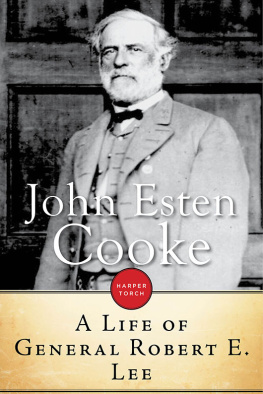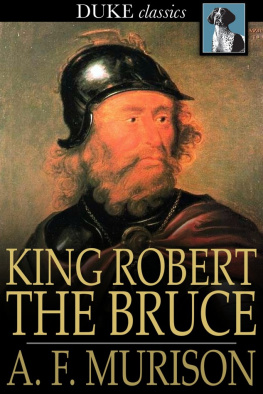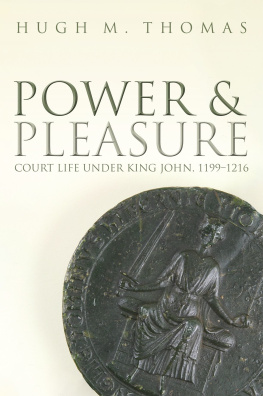John Esten Cooke
The King of Spades Life and Military Carrier of General Robert E. Lee
Lee's Early Life, Military Carrier (Battles of the Chickahominy, Manassas, Chancellorsville & Gettysburg), Lee's Last Campaigns and Last Days, the Funeral & Tributes to General Lee
Madison & Adams Press, 2017.
Contact
ISBN 978-80-268-7775-2
This is a publication of Madison & Adams Press. Our production consists of thoroughly prepared educational & informative editions: Advice & How-To Books, Encyclopedias, Law Anthologies, Declassified Documents, Legal & Criminal Files, Historical Books, Scientific & Medical Publications, Technical Handbooks and Manuals. All our publications are meticulously edited and formatted to the highest digital standard. The main goal of Madison & Adams Press is to make all informative books and records accessible to everyone in a high quality digital and print form.
I
INTRODUCTION
The name of Lee is beloved and respected throughout the world. Men of all parties and opinions unite in this sentiment, not only those who thought and fought with him, but those most violently opposed to his political views and career. It is natural that his own people should love and honor him as their great leader and defender in a struggle of intense bitterness that his old enemies should share this profound regard and admiration is due solely to the character of the individual. His military genius will always be conceded, and his figure remain a conspicuous landmark in history; but this does not account for the fact that his very enemies love the man. His private character is the origin of this sentiment. The people of the North, no less than the people of the South, feel that Lee was truly great; and the harshest critic has been able to find nothing to detract from this view of him. The soldier was great, but the man himself was greater. No one was ever simpler, truer, or more honest. Those who knew him best loved him the most. Reserved and silent, with a bearing of almost austere dignity, he impressed many persons as cold and unsympathetic, and his true character was long in revealing itself to the world. To-day all men know what his friends knew during his life that under the grave exterior of the soldier, oppressed with care and anxiety, beat a warm and kindly heart, full of an even extraordinary gentleness and sweetness; that the man himself was not cold, or stiff, or harsh, but patient, forbearing, charitable under many trials of his equanimity, and magnanimous without effort, from the native impulse of his heart. Friend and foe thus to-day regard him with much the same sentiment, as a genuinely honest man, incapable of duplicity in thought or deed, wholly good and sincere, inspired always under all temptations by that prisca fides which purifies and ennobles, and resolutely bent, in the dark hour, as in the bright, on the full performance of his duty. "Duty is the sublimest word in our language," he wrote to his son; and, if we add that other august maxim, "Human virtue should be equal to human calamity," we shall have in a few words a summary of the principles which inspired Lee.
The crowning grace of this man, who was thus not only great but good, was the humility and trust in God, which lay at the foundation of his character. Upon this point we shall quote the words of a gentleman of commanding intellect, a bitter opponent of the South in the war:
"Lee is worthy of all praise. As a man, he was fearless among men. As a soldier, he had no superior and no equal. In the course of Nature my career on earth may soon terminate. God grant that, When the day of my death shall come, I may look up to Heaven with that confidence and faith which the life and character of Robert E. Lee gave him. He died trusting in God as a good man, with a good life, and a pure conscience."
He had lived, as he died, with this supreme trust in an overruling and merciful Providence; and this sentiment, pervading his whole being, was the origin of that august calmness with which he greeted the most crushing disasters of his military career. His faith and humble trust sustained him after the war, when the woes of the South wellnigh broke his great spirit; and he calmly expired, as a weary child falls asleep, knowing that its father is near.
Of this eminent soldier and man whose character offers so great an example, a memoir is attempted in this volume. The work will necessarily be "popular" rather than full and elaborate, as the public and private correspondence of Lee are not at this time accessible. These will throw a fuller light on the subject; but sufficient material is at the disposal of the writer to enable him to present an accurate likeness of Lee, and to narrate clearly the incidents of his career. In doing so, the aim of the author is to measure out full justice to all not to arouse old enmities, which should be allowed to slumber, but to treat his subject with the judicial moderation of the student of history.
A few words will terminate this preface. The volume before the reader was begun in 1866. The writer first, however, informed General Lee of his design, and had the honor to receive from him in reply the assurance that the work "would not interfere with any he might have in contemplation; he had not written a line of any work as yet, and might never do so; but, should he write a history of the campaigns of the Army of Northern Virginia, the proposed work would be rather an assistance than a hinderance."
As the writer had offered promptly to discontinue the work if it were not agreeable to General Lee, this reply was regarded in the light of an assurance that he did not disapprove of it. The composition was, however, interrupted, and the work laid aside. It is now resumed and completed at a time when the death of the illustrious soldier adds a new and absorbing interest to whatever is connected with his character or career.
II
THE LEES OF VIRGINIA
The Lees of Virginia spring from an ancient and respectable family of Essex, in England.
Of some members of the family, both in the Old World and the New, a brief account will be given. The origin of an individual explains much that is striking and peculiar in his own character; and it will be found that General Lee inherited many of the traits of his ancestors, especially of some eminent personages of his name in Virginia.
The family pedigree is traced back by Lee, in the life of his father, to Launcelot Lee, of London, in France, who accompanied William the Conqueror to England. After the battle of Hastings, which subjected England to the sway of the Normans, Launcelot Lee, like others, was rewarded by lands wrested from the subdued Saxons. His estate lay in Essex, and this is all that is known concerning him. Lionel Lee is the next member of the family of whom mention is made. He lived during the reign of Richard Coeur de Lion, and, when the king went on his third crusade, in the year 1192, Lionel Lee raised a company of gentlemen, and marched with him to the Holy Land. His career there was distinguished; he displayed special gallantry at the siege of Acre, and for this he received a solid proof of King Richard's approbation. On his return he was made first Earl of Litchfield; the king presented him with the estate of "Ditchley," which became the name afterward of an estate of the Lees in Virginia; and, when he died, the armor which he had worn in the Holy Land was placed in the department of "Horse Armory" in the great Tower of London.









